
Meditative
May 13th, 2009
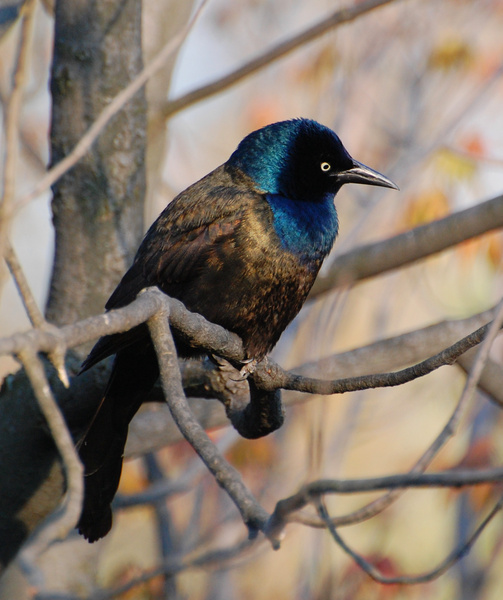
1680x1050 wallpaper
Common Grackle. Another one that came out surprisingly painting-like.
Woodland Blackbird
May 12th, 2009
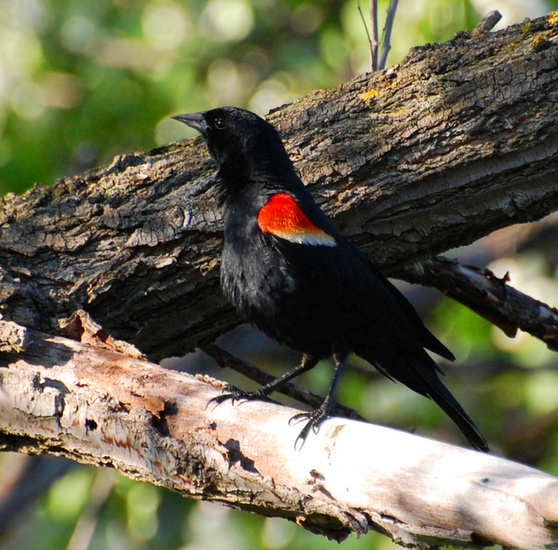
It's so nice to have leaves again, so my bokehs can be green instead of gray!
"The Ridge" at Britannia (a strip of elevated land between Mud Lake and the Deschenes Rapids) is a prime location for Red-Winged Blackbirds in spring. Females nest down on either side of it, and the males perch to sing and display their epaulets. As the season progresses they become more and more lackadaisical about the presence of humans--at least they certainly don't seem to feel intimidated by us. That makes them fun to photograph.
There probably are or soon will be nestling redwings, not that I'm likely to ever see any until they fledge. They'll stay safely hidden in the cattails for now.
Aviamania
May 4th, 2009
We've now entered the stage of bird migration known as "Yellow-Rumped Warblers take over the universe." Females and juveniles have arrived and flocks are everywhere, outnumbering even the chickadees. This one is, I think, a yearling male:
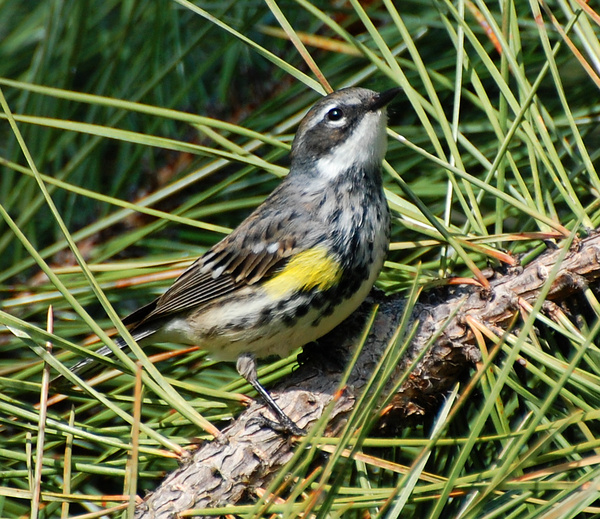
A Great Crested Flycatcher gave me a slightly less awkward view of himself (than last time). This is a common breeding bird at Mud Lake and many other places--and one of the noisiest! Its "crest" is really just a ruffling of the crown feathers and is not always apparent.

Not many new species today. There's more to come, but we're in a lull. I did see my first Barn Swallow of the year, and, belatedly, this:
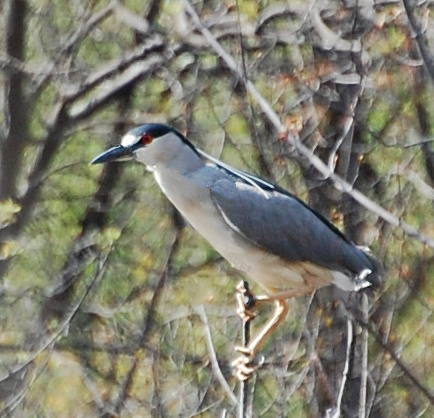
This picture sucks, owing to the fact that it was taken in a swampy tangle of woods from about a hundred feet away. But I give a large leeway for interesting birds that I've never managed to photograph before. This is a Black-Crowned Night Heron. Several pairs of them breed near Mud Lake each year. It's not obvious from the picture, but they stand about two feet high.
Painted Turtle
May 3rd, 2009

Palm Warbler
May 2nd, 2009
I spent about an hour trying to photograph this bashful Palm Warbler (first of spring). He eventually got somewhat used to me and came out of thick cover long enough for a few good shots.


Palm Warblers breed almost exclusively in black spruce bogs in the boreal forests of Canada. Their only known breeding location in Ottawa is Mer Bleue--which, as you know if you've been there, is an unusual psuedo-boreal habitat of a sort found nowhere else in our area.
In spring migration, though, Palm Warblers are a common sight all over Ottawa, usually hopping around in bushes and wagging their tails constantly. This one was near the Rideau river.
Black squirrel threeway!
May 1st, 2009
I'm...really not quite sure what was going on here.
Whatever it was, it went on for some time.



Color And Song
April 29th, 2009
Mud Lake is overflowing with color and song. First-of-spring sightings:
- Great Crested Flycatcher
- Gray Catbird
- Warbling Vireo
- More Ruby-Crowned Kinglets than you can shake a stick at.
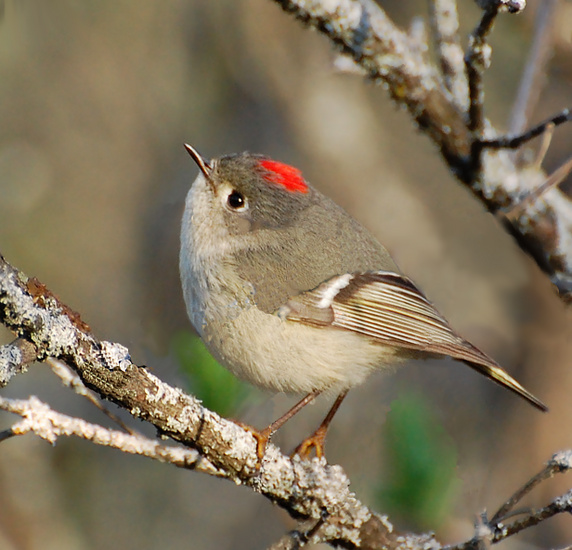
Ruby-Crowned Kinglets are a tiny bit less hyperactive than Golden-Crowned Kinglets. The male's ruby crown is usually hidden. But when he gets excited (due to a territorial dispute with another kinglet, for instance), his crown feathers ruffle and the red appears, usually in a "blink and you miss it" moment. When I get a focus on one of them, I rapid-fire and hope I manage to capture that moment.
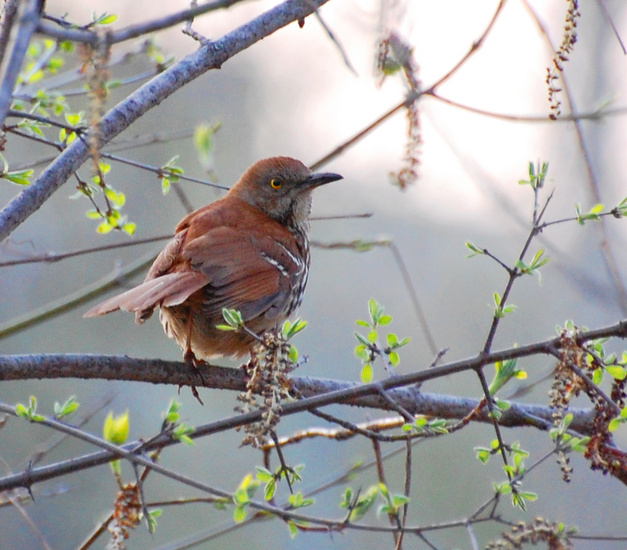
A Brown Thrasher in the early morning light. Along with mockingbirds and catbirds, thrashers are mimids. Their songs are intricate and variable, and they are capable of imitating other birds. Thrashers tend to be elusive when they're not singing.
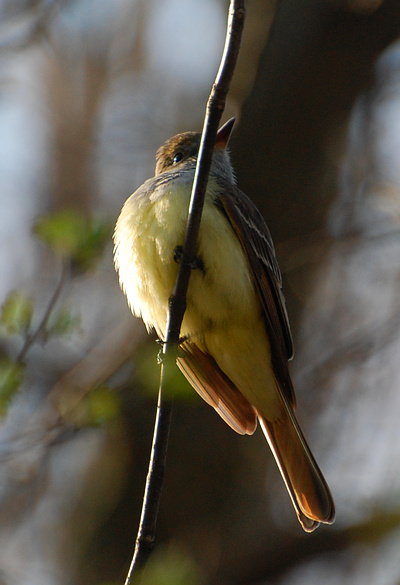
Like other flycatchers, the Great Crested Flycatcher will perch in the open, sally up to snatch the occasional flying insect, then drop back down. This bird is known for the odd habit of including a shed snakeskin in its nest lining. Naturalists theorize that it's a ruse for warding off predators.
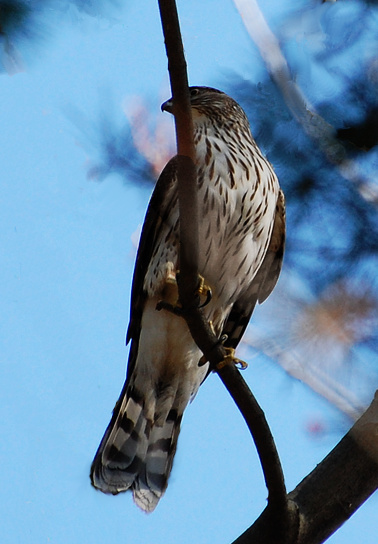
An ungodly racket of angry crows announced this final bird, a juvenile (first-year) female Cooper's Hawk. They chased her out of the woods and she ended up perching practically right above me, looking nervously back at the mob.
According to another birder who got there before me, she's mated to a mature male and they're likely planning to nest at Mud Lake. He also claimed that, when it all started, she was attempting to hunt one of the crows! I hadn't heard of a Cooper's Hawk (or indeed any hawk) being quite that ambitious before. Presumably she's learned her lesson.
River Angel
April 28th, 2009

1680x1050 wallpaper
Ring-Billed Gull on the Rideau rapids near Carleton.
A Flash Of Gold
April 27th, 2009
Our recent summery weather has opened the floodgates on songbird migration. Yellow Warblers are back. This beautiful bird is Ottawa's most common breeding warbler.
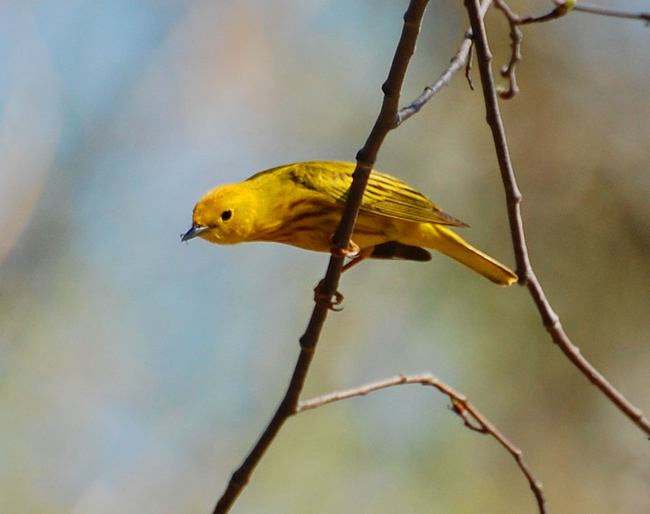
...and, I should add, I'm not the only one who is pleased with the influx of songbirds:

That would be a Cooper's Hawk, a rapacious bird-eating raptor. (I photographed her two close relatives, the smaller Sharp-Shinned Hawk and the king-size Northern Goshawk, earlier this year.) She was perched low at Hog's Back Park scanning for prey, and didn't seem to mind or even deign to notice when I got within ten feet of her.
Redwing Nesting Grounds
April 24th, 2009
Found this lady in a reed bed by the Deschenes Rapids, inspecting potential nesting grounds.
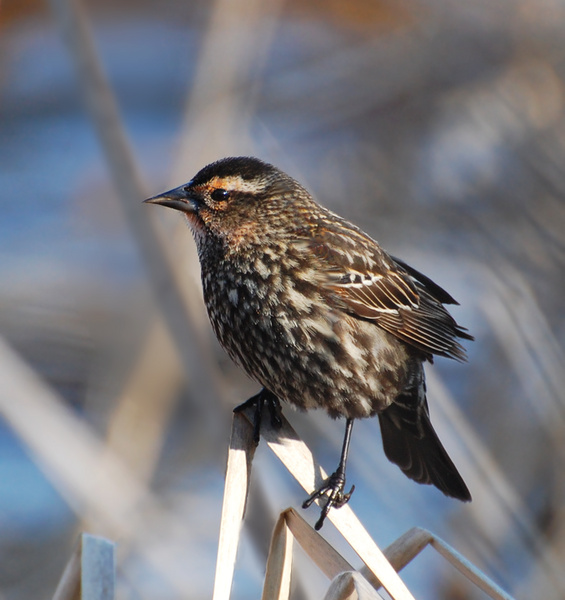
1680x1050 wallpaper
I have a big soft spot for female Redwings. There are three reasons for this. One if that I find them quite handsome, and I like the gentle expression of their faces.
Two is that they, like their mates, are gutsy when it comes to protecting their young. If you wander into Redwing nesting territory when there are eggs about, beware. Those birds fluttering in your face are not attempting to give you a friendly greeting.
And three is that when I first saw one of these, a couple years ago, I thought it was something much rarer than it was. It's not commonly known that female Red-Winged Blackbirds are neither black nor red-winged.
In the migration news, Pine Warblers have arrived and colonized the tall pines at Mud Lake, as they do each spring. This is the first warbler species of the year, at least for me--several dozen more yet to come! I also saw my first Brown Thrasher today. I have high hopes of showing off a good thrasher pic someday, Pine Warblers not so much. They spend nearly all their time in the canopy.
|
